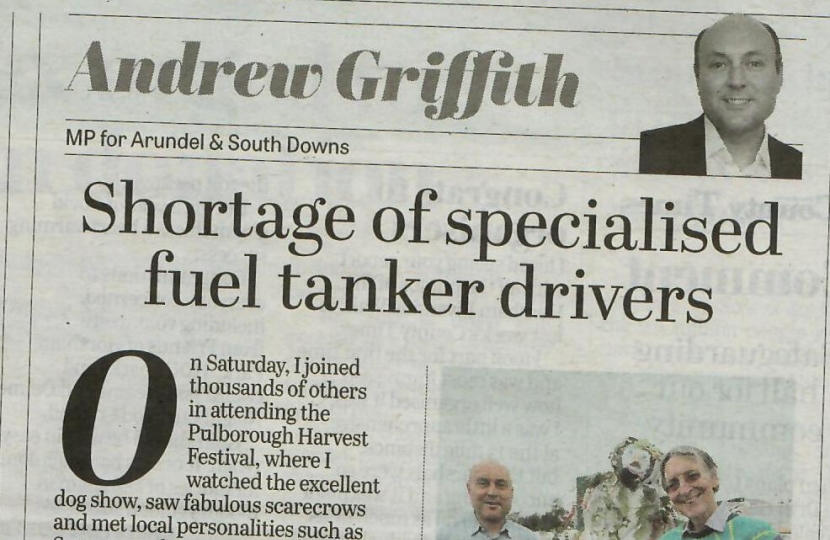
On Saturday, I joined thousands of others in attending the Pulborough Harvest Festival, where I watched the excellent dog show, saw fabulous scarecrows and met local personalities such as Sussex weatherman, Ian Currie and Pulborough Community Partnership Director, Rob Aylott.
I was also privileged to meet Robert Harris, from Ashington, who together with his five brothers have been running their renowned Harris fairground business for decades. The firm was started by their father Fred in the 1860s, who saw the shift from horse-drawn to steam-driven carousels. It was a pleasure to talk to Robert, and I was delighted to hear from him that Government financial support last year saved his business and this charming part of our heritage.
There has been much comment and attention over the fuel this week. I regret the inconvenience to constituents but there has never been a shortage of fuel. Instead, queues at the pumps were the psychological consequence of media rumours causing a spike in demand that no logistics system could deal with. One garage owner reported that he usually dispenses between 20,000 and 30,000 litres of fuel per day but that panicky motorists sucked 100,000 litres from his pumps on Sunday alone. While the hype has been disproportionate, there is a real shortage of specialised fuel tanker drivers – the industry estimates it needs about 350 drivers. As older drivers retired over the past few years, they have not been replaced and this has been exacerbated by the pandemic. Only 2% of HGV drivers are under 25, and the average age is 55 years old. As noted by The Grocer magazine recently ‘Better pay and conditions will be a major factor in re-engaging the workforce and the crisis is already forcing change on this front. Driver wages have risen by an estimated 20 per cent since the shortages hit home, as companies compete for drivers.’ This is a step in the right direction as the truth is that for too long, many industries have been relying on cheap labour from abroad when they should have been raising wages and investing in skills and training locally.